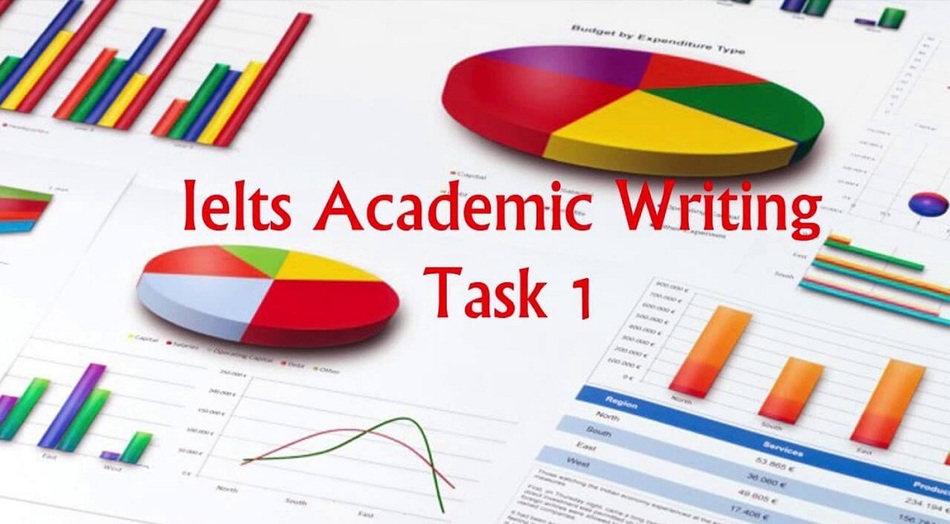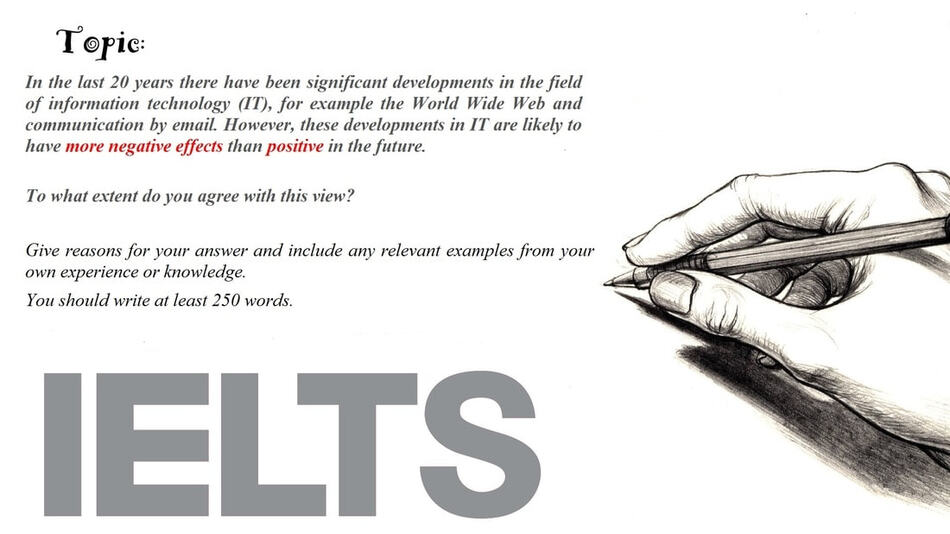IELTS Writing Tips: The Ultimate Guide for Beginners
Achieving a high score in the IELTS Writing module is often considered one of the most challenging aspects of the exam. However, with the right strategy and a clear understanding of what examiners are looking for, it is entirely possible to reach your target band. This guide by IELTS-Testpro compiles essential IELTS writing tips and strategies designed to refine your writing skills and maximize your performance on test day.

I. Understanding the IELTS Writing Test Format
Before diving into specific strategies, it is crucial to have a comprehensive understanding of the test structure. The IELTS Writing test consists of two distinct tasks, each assessing different aspects of writing proficiency, and lasts for a total of 60 minutes. Familiarizing yourself with these requirements is the first step toward success.

Task 1 varies depending on whether you are taking the Academic or General Training module:
- IELTS Academic: Candidates must analyze and describe visual data such as graphs, charts, diagrams, or maps. The focus is on data interpretation and reporting.
- IELTS General Training: Candidates must write a letter (formal, semi-formal, or informal) in response to a given situation.
Task 2 is common to both versions and requires candidates to write an essay in response to an argument, problem, or opinion. This task carries more weight than Task 1 and evaluates critical thinking, coherence, and the ability to develop well-structured arguments using appropriate vocabulary and grammar.
II. Overall Tips for Writing IELTS
Regardless of the specific task, there are fundamental principles that apply to the entire Writing module. Mastering these general tips will create a strong foundation for your essays.

1. Analyze the Task Carefully
Analyzing the task carefully in the IELTS Writing tips is essential to stay on topic and avoid losing marks. In Task 1, you need to identify key trends, comparisons, or requirements in the given visual data or letter prompt. In Task 2, you must determine the essay type and ensure your response fully addresses the question with relevant ideas and examples.
2. Manage Your Time Effectively
Time management is always an important IELTS writing tips to ensure both tasks are completed effectively. Candidates should allocate their 60 minutes wisely to maximize your score.
- Task 1: Spend approximately 20 minutes and aim to write 150–180 words while clearly summarizing key trends or responding to the given prompt.
- Task 2: Dedicate 40 minutes to this more demanding task, ensuring you write 250–300 words with well-structured arguments and supporting evidence.
3. Do not Copy the Question
In the IELTS Writing test, copying the question directly into your answer will not be counted towards your word count and may negatively impact your score. Instead, you should paraphrase the question by using synonyms and restructured sentence patterns while keeping the original meaning intact.
4. Organize Your Ideas Clearly
One of the most important IELTS writing tips is to organize your ideas clearly for a well-structured response. Besides, cohesive devices like however, in addition, and for example will improve clarity and coherence in your writing.
- Introduction: Paraphrase the question and present a clear thesis statement.
- Body Paragraphs: Each paragraph should focus on one main idea, supported by evidence or examples.
- Conclusion: Summarize key points and restate your position.
5. Use Formal and Academic Language
The IELTS Writing test requires a formal and academic tone to achieve a high score. Candidates should avoid contractions, informal expressions, and slang. Instead, they should use advanced vocabulary and precise terminology to demonstrate a broad lexical range.
For example:
- It is better to write “do not” instead of “don’t” to maintain formality.
- The word “children” should be used instead of “kids”, as “kids” is too informal.
- Instead of saying “big change,” a more academic phrase like “significant improvement” should be used.
- The phrase “conduct research” is more appropriate than “do research” in academic writing.
III. Key Tips for Writing IELTS Task 1
Task 1 is strictly a reporting task. It requires you to translate visual information into a written report without adding personal bias.

1. Avoid “Direct” 1st and 2nd-Person Pronouns
In IELTS Writing Task 1, you should maintain a formal and objective tone. Avoid using personal pronouns like “I,” “you,” or “we”, as Task 1 requires you to describe data, processes, or trends rather than express personal opinions. Following this IELTS writing tip ensures that your response remains academic and appropriate for the task.
2. Avoid Opinion-based Sentences
Since Task 1 is not an opinion-based task, you should avoid phrases such as “I think,” “I would suggest,” “I believe,” or “In my opinion.” Instead, focus on factual descriptions and objective analysis of the given data. This is one of the most essential information for writing IELTS Task 1, as it helps maintain a formal and academic tone.
3. Do not Write Every Single Detail
One of the key tips for writing IELTS Task 1 is to focus only on the most significant trends and key features of the given data, rather than describing every minor detail. Examiners are looking for clear comparisons and logical groupings of information, not an exhaustive list of every number or statistic.
4. Always Write an Overview
A well-written overview is required in IELTS Writing Task 1 as it highlights the most important trends or key differences in the data. This summary should be placed after the introduction and should not include specific numbers. Without an overview, your response will be incomplete, which can lower your Coherence and Cohesion score.
5. Use a Variety of Sentence Structures
To achieve a high score in IELTS Writing Task 1, you must demonstrate a wide range of sentence structures. Relying only on simple sentences can limit your score, so it is essential to incorporate complex sentences, comparative structures, and passive voice when appropriate.
See more: IELTS Writing Task 1 Vocabulary – The Essential words for IELTS test-takers
IV. Key Tips for Writing IELTS Task 2
Task 2 demands a different set of skills: argumentation, idea development, and persuasive writing.

1. Cover All parts of the Question
If you fail to fully respond to the task, your score in Task Achievement will be lower. To avoid this, you must carefully read the question, identify the main topic and subtopics, and structure your essay to provide a comprehensive and relevant response.
2. Develop and Extend your Ideas
A high-scoring IELTS essay must include well-developed ideas supported by explanations and examples. Instead of simply stating an opinion or fact, you should elaborate by providing logical reasoning, relevant examples, and clear supporting details.
3. Have a Clear Position on the Topic
Your essay should clearly present your stance on the given topic from the introduction to the conclusion. Whether you agree, disagree, or take a balanced approach, ensure that your argument remains consistent throughout the essay.
4. Use a Range of Linking Devices
Using a variety of linking words and phrases is crucial for ensuring fluency and logical progression in your writing. Words such as “however,” “on the other hand,” “therefore,” and “as a result” help connect your ideas smoothly and make your essay more structured and coherent.
5. Show a Wide Range of Vocabulary and Grammar
A high-scoring essay demonstrates a strong command of IELTS writing vocabulary and diverse grammatical structures. Instead of repeating the same words, it’s better to use appropriate synonyms and paraphrases to enhance lexical resources.
See more: IELTS Writing Task 2 Vocabulary – The Essential words for IELTS test-takers
Conclusion
Mastering your tips for writing IELTS really takes practice, strategy, and a solid understanding of what the examiners are looking for. For more practice and to track your progress, try IELTS online tests in IELTS Test Pro and see how well you’re prepared for the real exam!